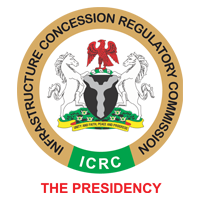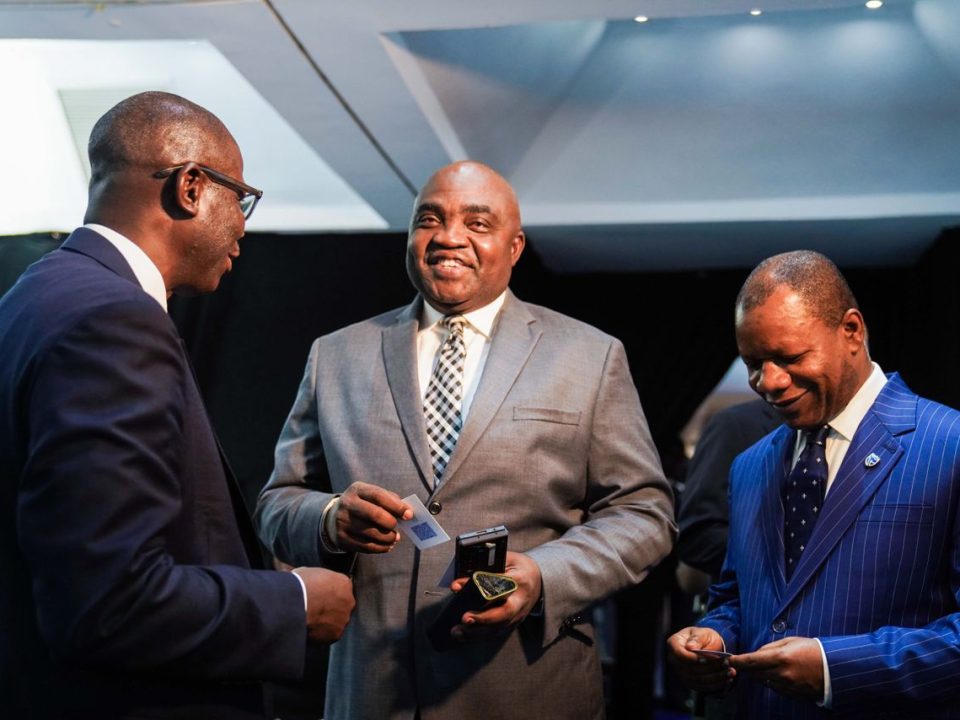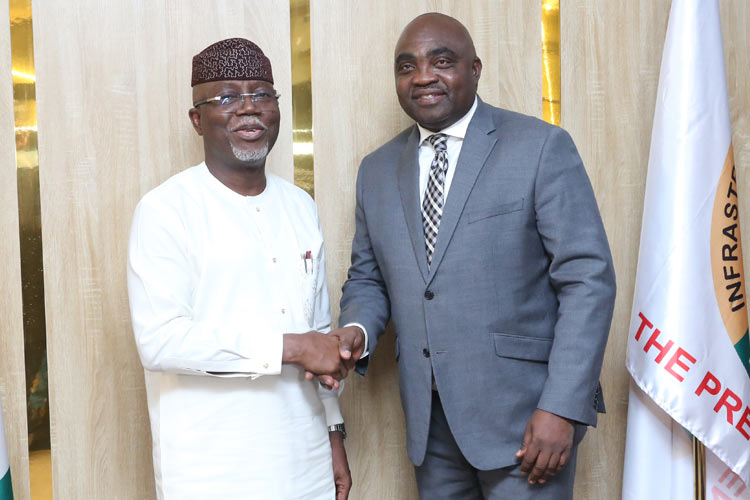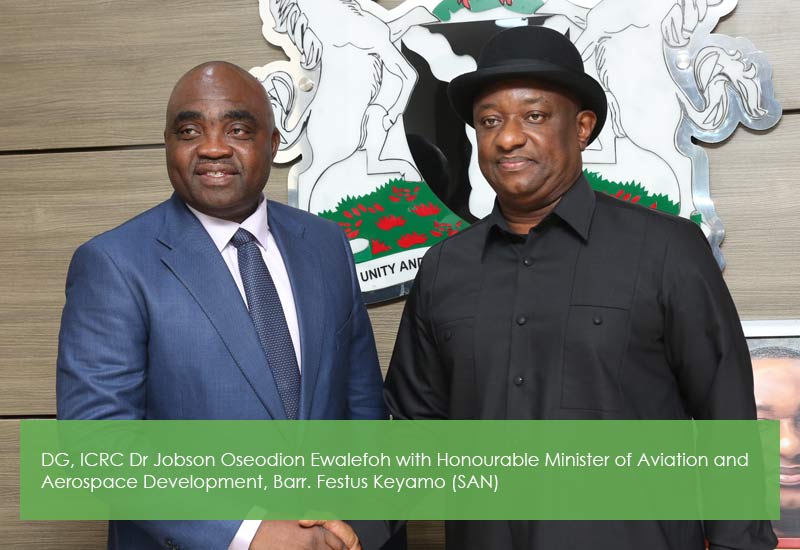PPP Contract Disclosure Portal: Key to Improvement of Infrastructure Deficit in Nigeria?
Public Private Partnership, (PPP) has proven to be a veritable tool in the development of infrastructural facilities all over the world. Thus, in line with one of the indicative parameters of Vision 20:2020 – the blueprint designed by the government to make Nigeria one of the world’s best 20 economies by 2020, the Federal Government is making moves towards a massive upgrade of infrastructure across several sectors. Over twenty (20) projects are lined up for private sector financing. These projects include a light rail system and the Kuje water works both in Abuja, Sagamu – Benin – Asaba highway, Abuja – Kaduna – Kano road, Lagos – Kaduna – Kaura Namoda – Nguru rail line, the Port Harcourt – Kafanchan – Maiduguri rail line and the Kiri Kiri Lighter Terminals 1 and 2. There are also projects in the health and housing sectors slated for private sector financing. As a result of the huge financial strain undertaking these multibillion dollar infrastructure development projects would incur, the Federal Government is looking towards the private sector to assist with undertaking the infrastructure upgrade.
However, would-be investors are wary of undertaking the over twenty (20) projects lined up for private sector financing as a result of the failure of previous PPP arrangements so far undertaken by the government. Virtually every PPP initiative of the government in the last decade has failed or been bogged down by disagreements, litigations and other problems. PPPs in Nigeria have faced a number of challenges including allegations of corruption, a lack of transparency and accountability, unsustainability due to changes in government and poor governance, poor project planning and management, poor access to funds as well as politicization of PPP contracts.
Contract Disclosure Portal
In the light of the above and in line with the Federal Government’s drive to ensure transparency in PPP models being deployed to finance critical infrastructure projects, the Infrastructure Concession Regulatory Commission (ICRC) recently inaugurated a first of its kind Contract Disclosure Portal (“Portal”). The World Bank and ICRC developed the web portal for the disclosure of all PPP contract information by the government. The Portal would ensure timely disclosure of contract information from project initiation through to the implementation and the entire phase of PPP projects.
According to the acting Director-General of the ICRC, Engr. Chidi Izuwah, the disclosure exercise supports President Mohammadu Buhari’s effort at institutionalising transparency and accountability in the procurement of PPP projects in Nigeria. The ICRC, the contracting authority, and the private party to the contract will share equally, the responsibility for generating information concerning PPP projects and ensure same is uploaded to the platform. Information will be uploaded by the contracting authority and ICRC after redacting confidential information.
The ICRC, in 2014, with the support of the World Bank Institute (WBI), had developed guidelines for PPP contracts disclosure in Nigeria which thereafter culminated into the development of the contract disclosure portal. The overall goal of the guideline for PPP Contract Disclosure in Nigeria is to institute a system that will ensure that the management of PPP contracts in Nigeria is as transparent as possible. A number of laws, including the Freedom of Information (FOI) Act 2011, the Public Procurement Act 2007, and the ICRC Act 2005, were reviewed, and PPP contract disclosure guidelines from eleven jurisdictions were considered as part of ICRC’s engagement with countries on facilitating transparency in PPPs. The objective of the review was to prepare a systematic body of knowledge from around the world on the degree of information disclosure needed and to ensure good practice in the execution of PPP contracts.
The objective of the Contract Disclosure initiative is to inform Nigerians and potential foreign investors about the important features of the PPP contract, the agreed standards of service and the actual performance levels achieved. Disclosure of performance indicators with their targeted levels can help put pressure on both the government and the private party to perform well.
Furthermore, as users get more educated about the contracts through regular information disclosure, service provision through PPP procurement would gain greater acceptance in the country. This is because disclosure of contract documents places a responsibility on the ministries, departments and agencies to ensure value for money throughout the life of the contract, and that services are performed at the levels agreed to in the contract. It also places a greater responsibility on public authorities to ensure implementation of the contract and honouring their responsibilities under PPP contracts. This would significantly reduce the number of failed PPP in Nigeria caused by inadequate knowledge, skills and capacity by participants both in public and the private sectors, poor evaluation, monitoring and due diligence by government among others.
It has become urgent to adopt measures that would address the infrastructure inadequacies in Nigeria. The ICRC initiative on disclosure of contract information may have a positive effect on future PPP projects as it has the potential of increasing the confidence of the private sector, which then leads to greater participation and the desired foreign investment in our infrastructure.
Holistic Approach towards bridging Infrastructure Deficit in Nigeria
The Contract Disclosure Portal initiative of the ICRC in conjunction with the World Bank is a step in the right direction. It would ensure that the management of PPP contracts in Nigeria is as transparent and efficient as possible. However, the Nigerian government must also adopt a holistic approach towards addressing the factors responsible for infrastructure deficit within the country in order to achieve the desired vision and economic growth for Nigeria. The nation’s infrastructure deficit could be better addressed if the Federal Government provides well-articulated guidelines and an enabling environment to attract private capital through effective PPP strategies.
Many of the failed concessions were fashioned out without proper understanding of the issues at hand and the financial requirements. The projects were not properly configured and were embarked on without proper analysis or forethought.
In order to bridge infrastructure deficit in Nigeria, a 30-year roadmap infrastructure development plan, known as the Integrated Infrastructure Master Plan (NIIMP), had projected that Nigeria required at least $2 Trillion USD for infrastructure development over the next three decades. For a sustainable infrastructure development to happen, government must first address the attendant issues which include policy instability, poor legal and political framework, lack of a holistic view of national planning, lack of coordination and efficiency between government agencies as well as limited capacity of civil servants among others.
It has become crucial for stakeholders to adopt a more creative approach towards tackling infrastructure challenges. While this approach focuses on private sector funding, integrating training and job creation components into projects from conception, the effective operations and maintenance of existing infrastructure projects must be prioritized and government must also ensure a favourable environment that would ease the cost of doing business in Nigeria.
The following are recommendations aimed towards bridging the infrastructure deficit in Nigeria:
- A widely represented participatory decision-making process that takes into account concerns of all relevant stakeholders including those who may be adversely affected;
- Cooperation and understanding among partners and other stakeholders will reduce the frequency of litigation which could stall PPP Projects beyond the projected duration;
- A well-organized system, a fair and transparent rule-based administrative process by which projects are developed and procured in order to achieve infrastructural developments;
- An enabling environment should be put in place in order to guarantee effective management of the PPP projects;
- Development of long term policies in support of PPP arrangements by the government to guide against incessant changes which usually occur anytime there is a change in leadership;
- An arrangement for project delivery that ensures efficient utilization of human, financial, natural and other resources without negative impact on future resources;
- An arrangement that improves dispute resolution and ensures public security and safety, as well as environmental safety in order to prevent failure of the projects;
- Neither the private nor the public sector is able to independently bridge all financing gaps. A combined pool of public and private sector financing and expertise, in conjunction with innovative partnerships would be required;
- The Government and the regulators must ensure that incentives in the capital markets are aligned with sustainable development. However, the desired transformation towards sustainable infrastructure development cannot occur without corporate leadership and innovation.
- There is also an important role for international private finance. Policies are needed to overcome obstacles to private investment, including long-term institutional investors such as pension funds and sovereign wealth funds, while addressing associated risks;
- Private capital flows should be managed in a way that encourages long-term investment. Public policies could encourage this by adopting policies for managing volatile capital flows as well as the need for greater international coordination for more efficient management of global liquidity;
- Private funding should be channelled towards long-term investment in sustainable development. In this regard, InfraCredit, an infrastructure credit enhancement institution which is established by the Nigeria Sovereign Investment Authority in collaboration with GuarantCo, to provide guarantees to enhance the credit quality of local currency debt instruments issued to finance eligible infrastructure related assets in Nigeria, may be utilised. It is expected that the successful operation of InfraCredit will address the constraints facing the Nigerian pension market, and other long-term investors, thereby increasing their involvement in investing in long-term bonds to finance infrastructure assets. InfraCredit will also be providing long-term capital required by infrastructure entities/projects which is presently unavailable in the domestic banking market.
Conclusion
The Contract Disclosure Portal initiative of the ICRC in conjunction with the World Bank is a step in the right direction towards addressing infrastructure deficit in Nigeria. However, it might be slightly optimistic to state that the portal by itself is the key to a successful PPP model in the country. Where the above recommendations are adopted concurrently, the desired result may be achieved for the greater good and advancement of the economy.
https://www.lexology.com/library/detail.aspx?g=eda7a188-1cc6-45ac-93d4-71c3e9cb3005



